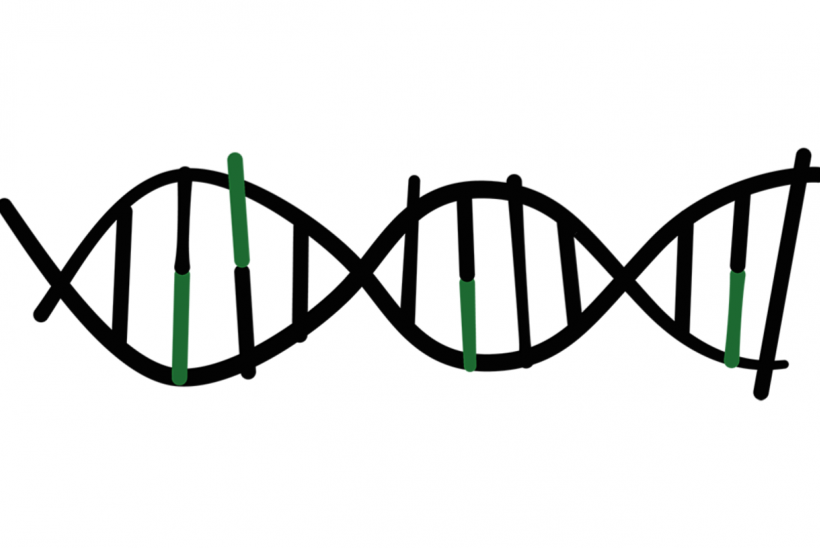GOSH加入针对新冠病毒COVID-19的开创性遗传基因研究项目
Great Ormond Street Hospital (GOSH) is recruiting COVID-19 patients to participate in a new nationwide study looking at why some people are more severely affected by the virus than others, as part of a partnership between the GenOMICC Study Consortium (led by the University of Edinburgh) and Genomics England.
The study, announced today by the Secretary of State for Health and Social Care, Matt Hancock, will help us better understand the virus’ varied effects and support the search for treatments.
It could explain why some patients with COVID-19 experience a mild infection, others require intensive care and why for some it is sadly fatal.
Researchers from the University of Edinburgh’s GenOMICC project, will work together with Genomics England and over 170 NHS hospitals, including GOSH. While a key aim of the project is understanding how the virus affects particularly vulnerable groups, including older people, the data from children and young people at GOSH could reveal vital information about why children tend to be less severely affected.
GOSH consultant and intensive care researcher Professor Mark Peters says: “We’re studying DNA from children in intensive care, looking for key differences in people who are more able, or less able, to fight off the infection. Understanding how genetic characteristics are linked to the body’s ability to fight off COVID-19 could help us protect those most at risk, or even develop new treatments.”
The study aims to sequence the genomes of 20,000 people – adults and children - who are severely ill with COVID-19. Around 2,000 patients have been recruited to the GenOMICC study already, including 5 patients from GOSH.
The data collected by GOSH and others will be compared to that from a further 15,000 COVID-19 patients who experienced only mild symptoms. These data will be collected from participants in the 100,000 Genomes Project and UK Biobank.
By discovering why some people are predisposed to developing life-threatening symptoms, the project could lead to new insights into the virus, as well as possible human factors that influence the effects of the disease, and whether a combination of both shape outcomes for NHS patients.
Dr Kenneth Baillie, Chief Investigator on the GenOMICC study, said: "Our genes play a role in determining who becomes desperately sick with infections like COVID-19. Understanding these genes will help us to choose treatments for clinical trials. The GenOMICC study has been running since 2016, and has been investigating genetic factors that impact how patients fare in response to a number of severe illnesses. Since the beginning of the COVID-19 outbreak, and with the tremendous support of the UK critical care community, the study has expanded and accelerated enormously, and we are now recruiting in over 170 ICUs across the country. I am delighted to be working with GOSH to deliver this important work.”
GOSH is involved in a number of COVID-19 research projects, from global studies to bespoke projects focused on our patients. Read more about how we’re helping to tackle the virus at gosh.nhs.uk/news/five-covid-19-questions-we-re-trying-answer.
All research at GOSH is underpinned by support from Great Ormond Street Hospital Children’s Charity (GOSH Charity) and the NIHR Great Ormond Street Hospital Biomedical Research Centre (BRC).
More Information
About Great Ormond Street Hospital for Children NHS Foundation Trust
Founded in 1852, Great Ormond Street Hospital is one of the world’s leading children’s hospitals with the broadest range of dedicated, children’s healthcare specialists under one roof in the UK. With more than 252,000 outpatient and 43,000 inpatient visits every year, the hospital’s pioneering research and treatment gives hope to children from across the UK with the rarest, most complex and often life-threatening conditions. As an international centre of excellence in child healthcare, our patients and families are central to everything we do – from the moment they come through the door and for as long as they need us. Visit www.gosh.nhs.uk
Research at GOSH is underpinned by support from the National Institute of Health Research (NIHR) Great Ormond Street Hospital Biomedical Research Centre (BRC) and GOSH Charity.
About GenOMICC
GenOMICC stands for Genetics Of Mortality In Critical Care (HTTPS://GENOMICC.ORG) and began in 2016 as an open, global consortium of intensive care clinicians to understand genetic factors that influence outcomes in intensive care from diseases such as SARS, influenza and sepsis. When COVID-19 hit, GenOMICC was already recruiting and has obtained DNA samples from 600 cases already.
The study is led by Dr Kenneth Baillie at the Roslin Institute, University of Edinburgh. Across the UK, the set-up of GenOMICC has been funded by a UK charity, Sepsis Research (FEAT), by the Intensive Care Society, and by the Wellcome Trust, UKRI(MRC) and the Chief Scientist Office.
Within the UK, GenOMICC is currently actively recruiting in over 160 intensive care units, covering more than three-quarters of the ICU capacity of the nation. Together with its international partners it aims to provide genetic evidence to help find new treatments for critically ill patients.
Genetics gives us an extremely powerful tool to help find new approaches to complex disease processes, but getting solid answers requires studying very large numbers of people. Ultimately, the global GenOMICC consortium aims to obtain 100,000 DNA samples from critically ill patients. This could have important implications for both the COVID-19 outbreak, and for critical illness in general.
About Genomics England
At Genomics England, our vision is to transform genomic healthcare by translating novel clinical insights to, drive better outcomes in the NHS and around the world. Our mission is to refine, scale and continually evolve our ability to enable genomic healthcare and research.
Genomics England was established in 2013 to deliver the 100,000 genomes project in partnership with the NHS. The whole genome sequencing of the “100,000 genomes” was completed in December 2018.


